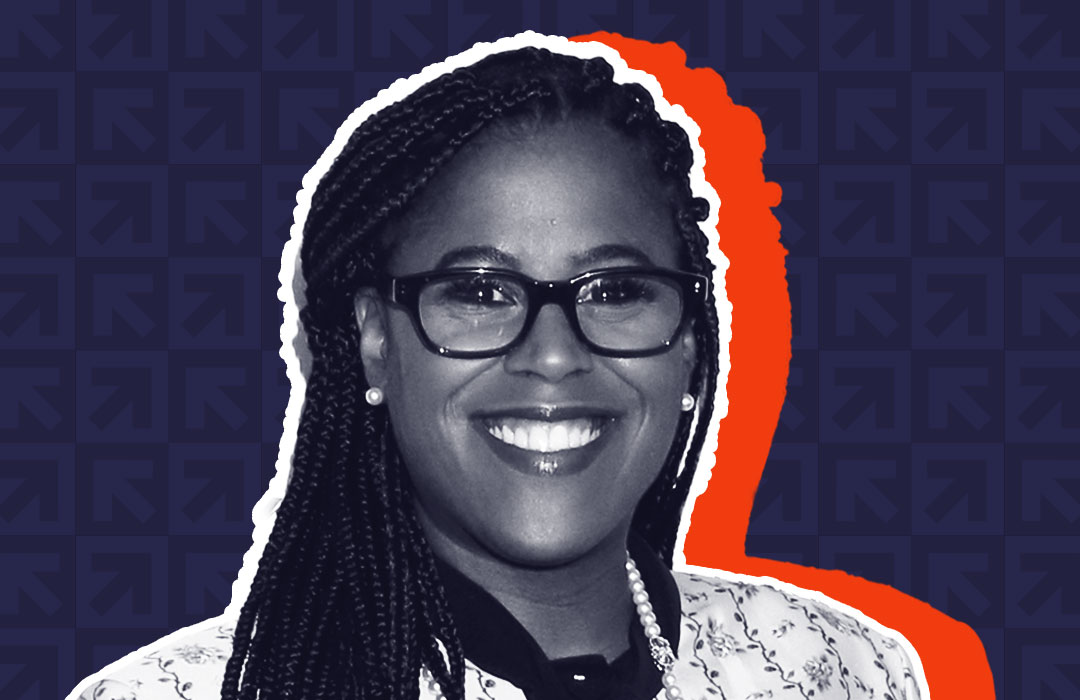When Thasunda Brown Duckett took over as president and CEO of financial-services firm TIAA in May 2021, she became just the fourth Black woman to ever lead a Fortune 500 company. (The other three are Rosalind Brewer, current CEO of Walgreens Boots Alliance; former Xerox CEO Ursula Burns; and Mary Winston, former interim CEO at Bed Bath & Beyond.)
Founded in 1918 to help teachers save for the future, today TIAA provides retirement accounts (think: 401(k) and 4013(b) plans) to 5 million academic, medical, cultural and government workers. The company has 15,000 employees and $1.2 trillion in assets under management.
As former CEO of Chase Consumer Banking, Duckett is no stranger to large numbers and important jobs. Yet, her new role provides the biggest stage yet for her to talk about issues like financial inclusion and diversity — in every sense of the word.
Duckett grew up in Texas and speaks often about how her mother (a school teacher) and father (a Xerox truck driver and warehouse worker) couldn’t always make ends meet. In interviews and speeches, she describes realizing, shortly after graduating from the University of Houston, that her father had never contributed to his 401(k) plan and would not have enough money to retire.
Her takeaway was that employers and the financial-services industry were not doing enough to reach people like her parents. The data bears this out — 37% of workers said they don’t know who to go to for financial and retirement planning advice in a 2022 survey conducted by the Employee Benefit Research Institute. Meanwhile, the Center for Retirement Research at Boston College has found that 54% of Black households are at risk of not having enough money to maintain their standard of living in retirement (compared to 48% of white households).
From her perch as CEO of a retirement company, Duckett now regularly encourages other business leaders to think about the Rosie and Otis Browns within their organizations — to make sure those workers are planning for retirement and investing their savings wisely.
At the same time, she is also pushing lawmakers to make it easier to automatically enroll employees in retirement plans, to automatically increase their contributions and to provide guaranteed income products (annuities), which she argues are a key part of a well-diversified portfolio.
The basic investing concept here is that having a diverse mix of assets — stocks and bonds, domestic and international, big companies and small — better prepares you to weather a range of market conditions.
Which, Duckett says, is also true of life.
In nearly every public address she gives, Duckett advocates for what she calls “a diversified life portfolio.” On Instagram, she recently told her 33,500 followers to “build a diversified life portfolio and you’ll reap the dividends called joy.”
Her feed suggests Duckett practices what she preaches. In between meeting with President Joe Biden and appearing on Good Morning America to chat with Robin Roberts about the gender pay and retirement gaps, Duckett celebrates her daughter’s fencing victories and takes her son to Ohio State football games.
She describes her approach as the opposite of work-life balance. Instead of trying to have it all, all the time, a diversified life portfolio is about knowing your limits. Everyone only has 100% to give, she says. So don’t try to give 150%. Be smart about allocating your energy.
“My children get about 30%,” she admitted at the Airport Business Diversity Conference (there's that word again) earlier this year. “That truth allowed me now to be more intentional, to be present.”






